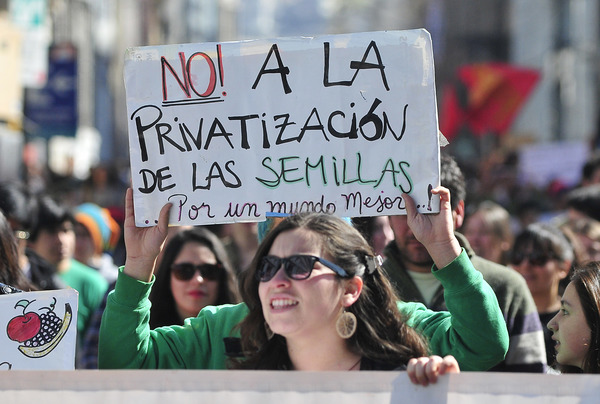Trade deals criminalise farmers' seeds
http://www.grain.org/article/entries/5070-trade-deals-criminalise-farmers-seeds

GRAIN | 18 November 2014 | Against the grain
What could be more routine than saving seeds from one season to the next? After all, that is how we grow crops on our farms and in our gardens. Yet from Guatemala to Ghana, from Mozambique to Malaysia, this basic practice is being turned into a criminal offence, so that half a dozen large multinational corporations can turn seeds into private property and make money from them.
But people are fighting back and in several countries popular mobilisations are already forcing governments to put seed privatisation plans on hold.
GRAIN has produced an updated dataset
on how so-called free trade agreements are privatising seeds across the world.
on how so-called free trade agreements are privatising seeds across the world.

Guatemala’s trade agreement with the US obliges it to adhere to the UPOV Convention. But popular resistance forced the government to repeal a national law passed for this purpose. (Photo: Raúl Zamora)
Trade agreements have become a tool of choice for governments, working with corporate lobbies, to push new rules to restrict farmers' rights to work with seeds. Until some years ago, the most important of these was the World Trade Organization's (WTO) agreement on Trade-Related Aspects of Intellectual Property Rights (TRIPS). Adopted in 1994, TRIPS was, and still is, the first international treaty to establish global standards for “intellectual property” rights over seeds.1The goal is to ensure that companies like Monsanto or Syngenta, which spend money on plant breeding and genetic engineering, can control what happens to the seeds they produce by preventing farmers from re-using them – in much the same way as Hollywood or Microsoft try to stop people from copying and sharing films or software by putting legal and technological locks on them.

0 Comentarios:
Publicar un comentario
Suscribirse a Comentarios de la entrada [Atom]
<< Página Principal